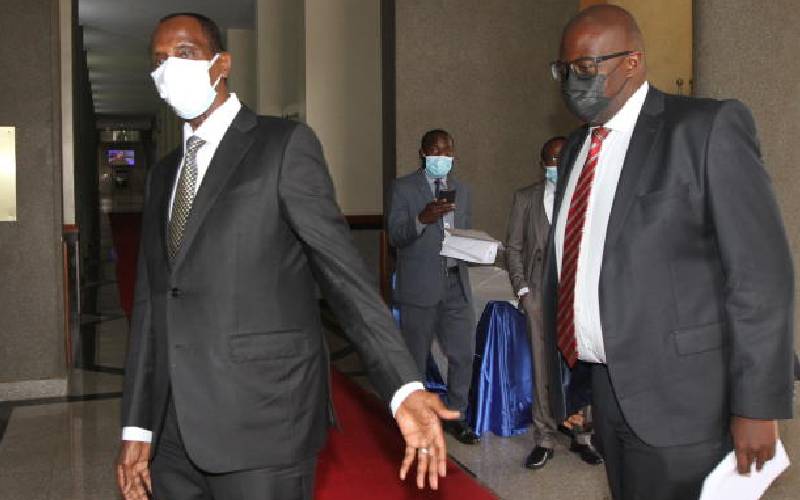×
The Standard e-Paper
Kenya’s Boldest Voice

The Senate select committee hearing impeachment proceedings against Wajir Governor Abdi Mohamud declined to summon family members after Members of the County Assembly accused them of graft.
Nyamira Senator Okong’o Omogeni-led team had been told by the MCAs through lawyer Ahmednasir Mohamed that the wife and children had some serious explaining to do about skewed payments made by the county government, which the county assembly believes were kickbacks running into millions of shillings.